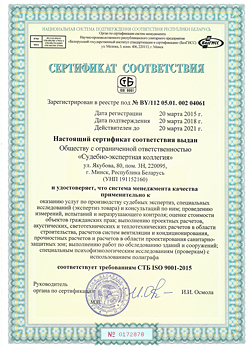The Forensic expert kollegium conducts quality epertise of various types of both household and professional electrical tools and equipment.
The most common causes of electrical tool failure are:
- low-quality manufacturing of components and parts of electrical tools (manufacturing defect);
- operation of an electrical tool with an unacceptable excessive load (operational defect);
- operation of an electrical tool in unacceptable conditions (operational defect);
- shock or thermal impact on the electrical tool (operational defect);
- the use of low-quality components and quick-wearing parts when performing repairs and (or) maintenance in a repair shop (manufacturing defect).
When buying an electrical tool for the first time, a consumer often does not fully assess his needs for a it, naturally, trying to save money while making the purchase, the buyer acquires a tool that is not suitable for professional use or lacks power. When the money is already spent and there is no way to return a qualitative, but not suitable product to the seller, many consumers try to complete the planned work with the purchased tool, despite the incomplete compliance of it with the tasks set. Most electrical tool manufacturers design their products with a significant margin of safety, but in some cases even this forethought does not save the electrical tool from breakdowns.
Most consumers are sure that the state of increased wear of an electrical tool due to excessive loads cannot be distinguished from the state of its long-term operation, therefore, if a failure occurs during the warranty period, they apply to the seller or the service center with claims. In fact, there are objective signs that are revealed during disassembly of the product and microscopic examination of its parts, allowing to make a categorical conclusion about the presence of manufacturing defects or unacceptable operating conditions.
Due to the rather high proportion of unfounded consumer claims that the “amateur” electrical tool does not meet their expectations, we need to warn buyers against wasting money on expertise in the described above cases. Before sending a power tool for expertise, the owner must carefully read the requirements of the operational documentation (passport, instructions or operating manual) and honestly answer the question for himself: “Have all the restrictions imposed on the operation of the product been met?”. If the answer is yes, then feel free to write an application to the seller for the electrical tool expertise, otherwise do not risk your money in vain - the Forensic expert kollegium employees are professionals who will reliably determine the cause of the breakdown in any case.
You can contact the Forensic expert kollegium on the issues of conducting an expertise of electrical tools at: Minsk, Zhukovsksaga St., 11A, 4th floor
or by phone: +375 (17) 317 04 71; +375 (17) 317 04 72; +375 (17) 317 04 73; +375 (17) 317 04 74; +375 (17) 317 04 76; +375 (29) 109 60 11; +375 (44) 588 60 11
© K.Dadzkou




















